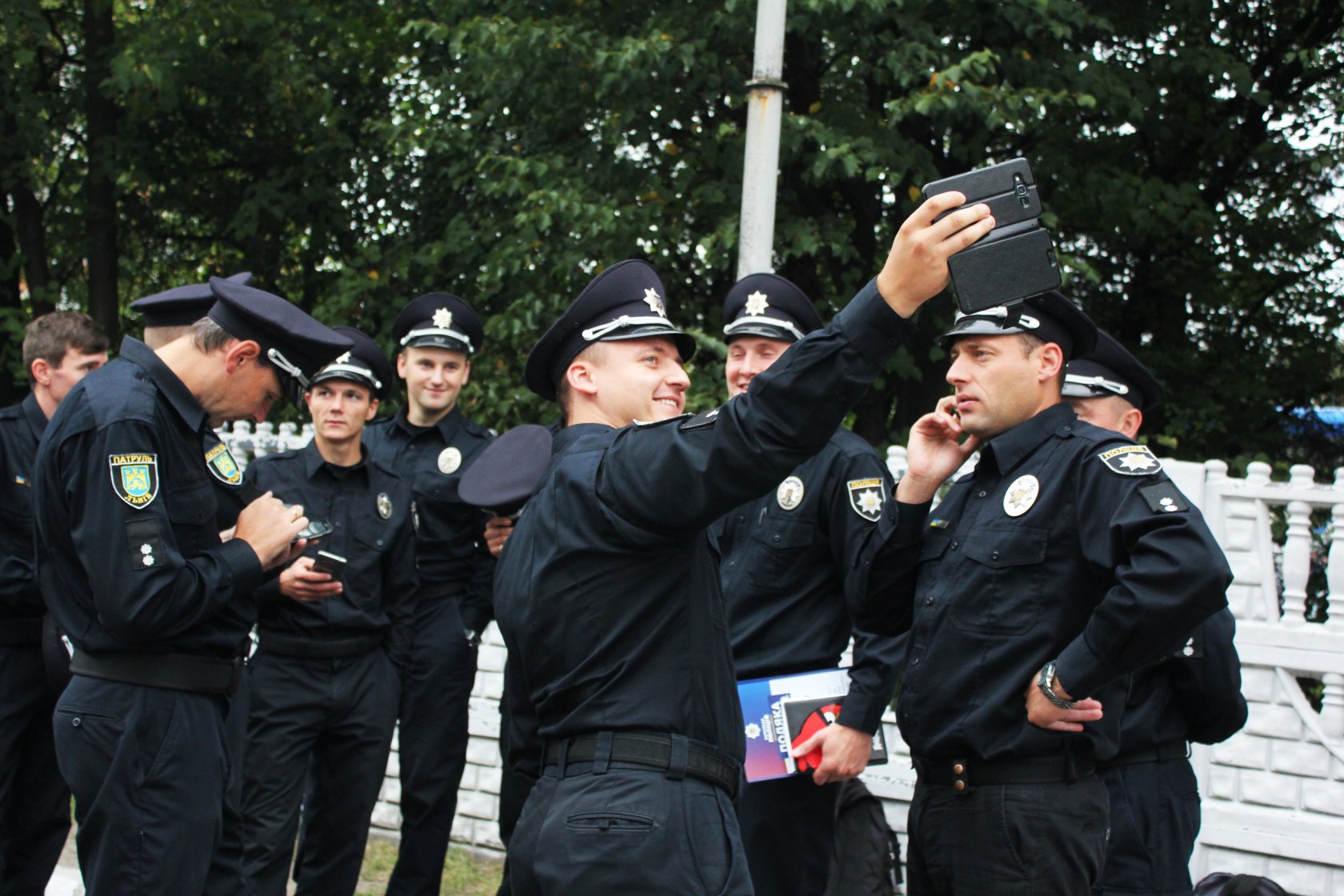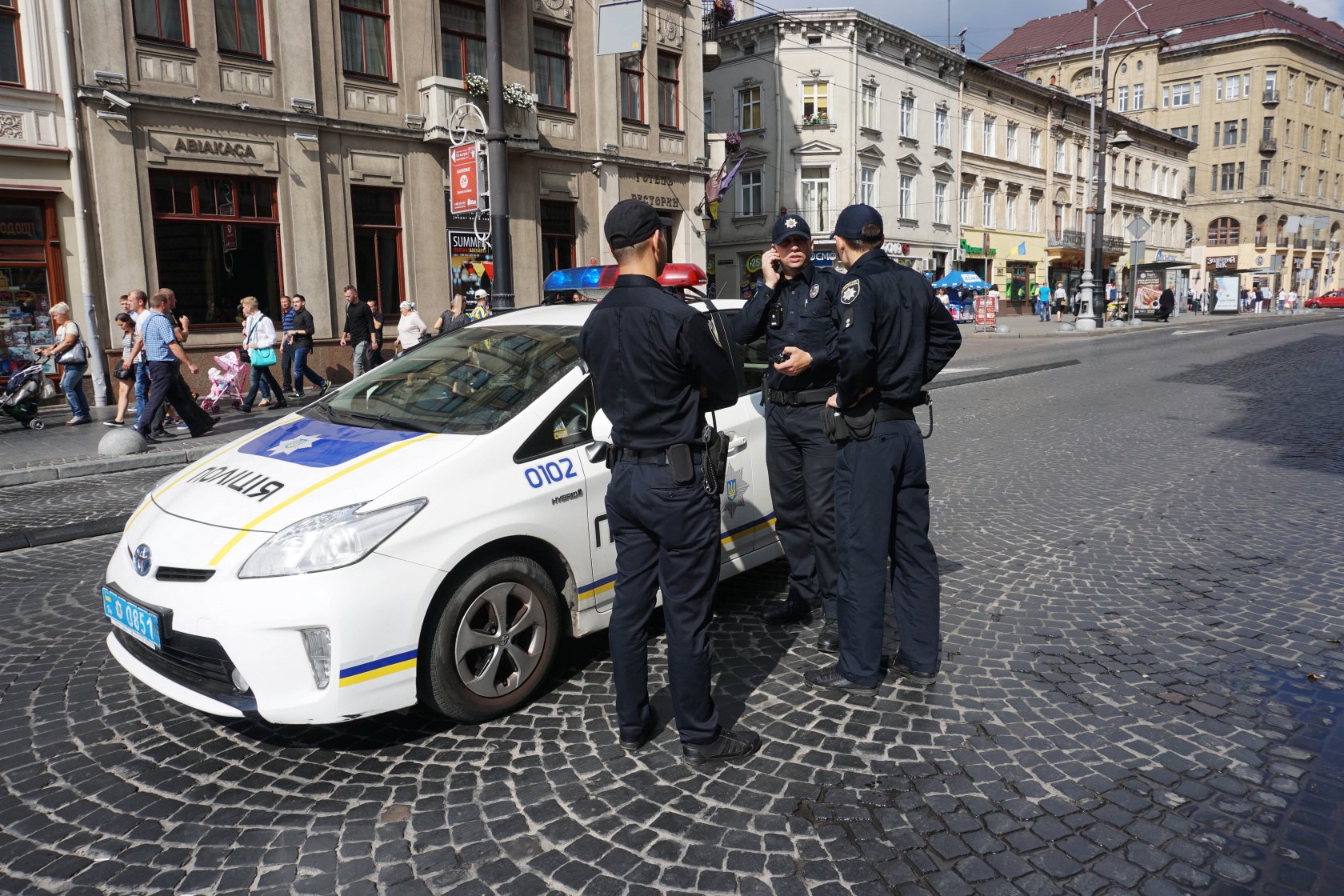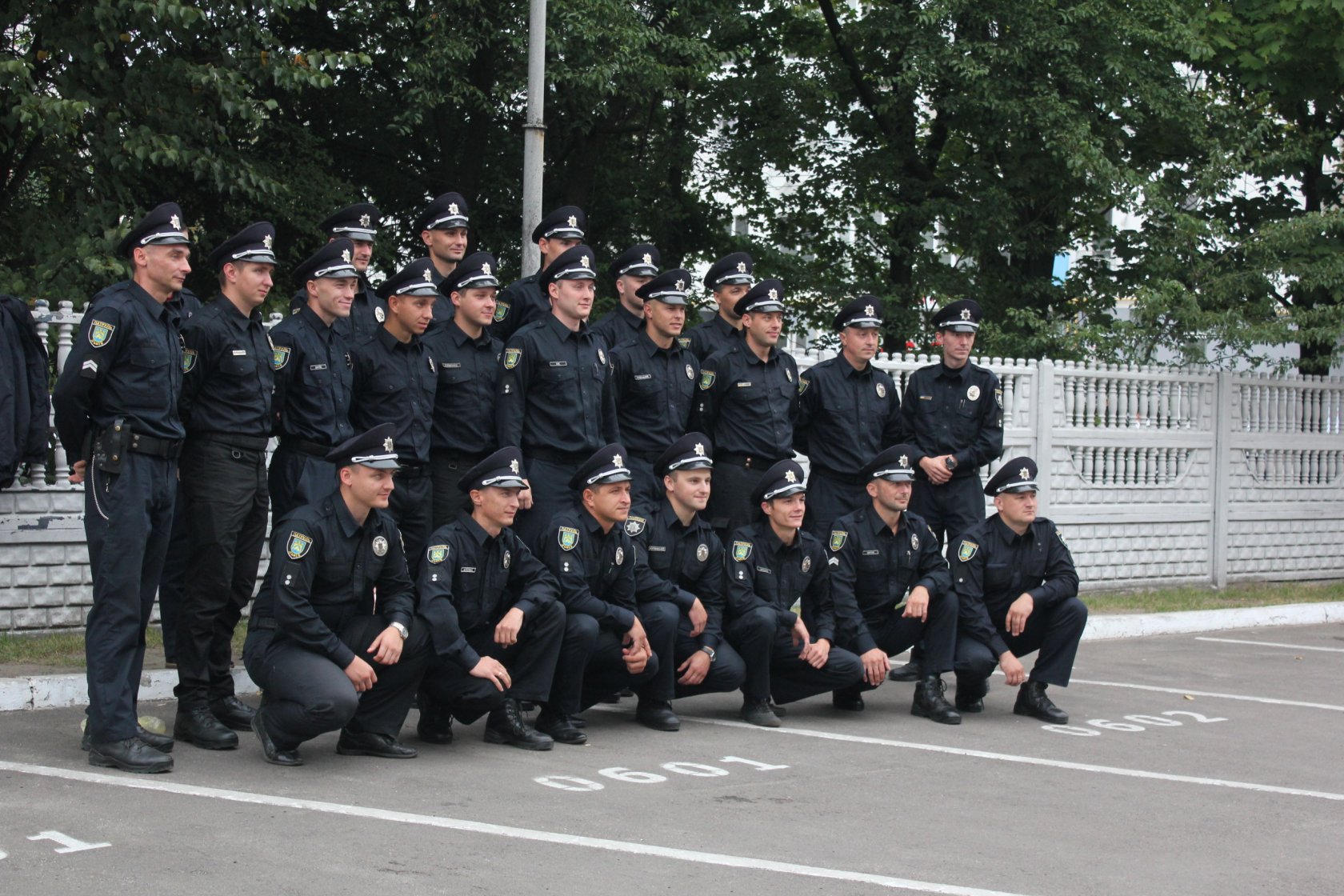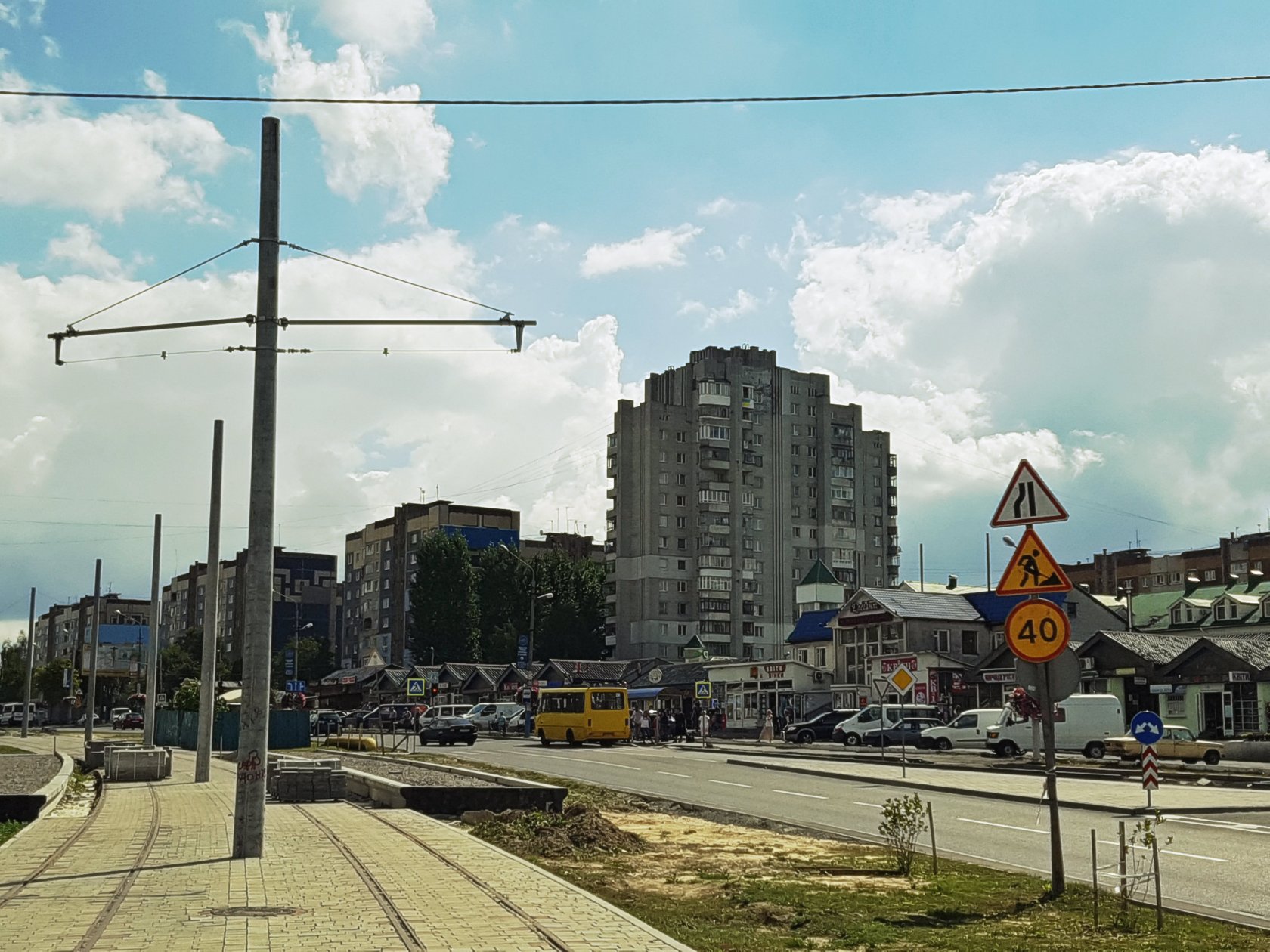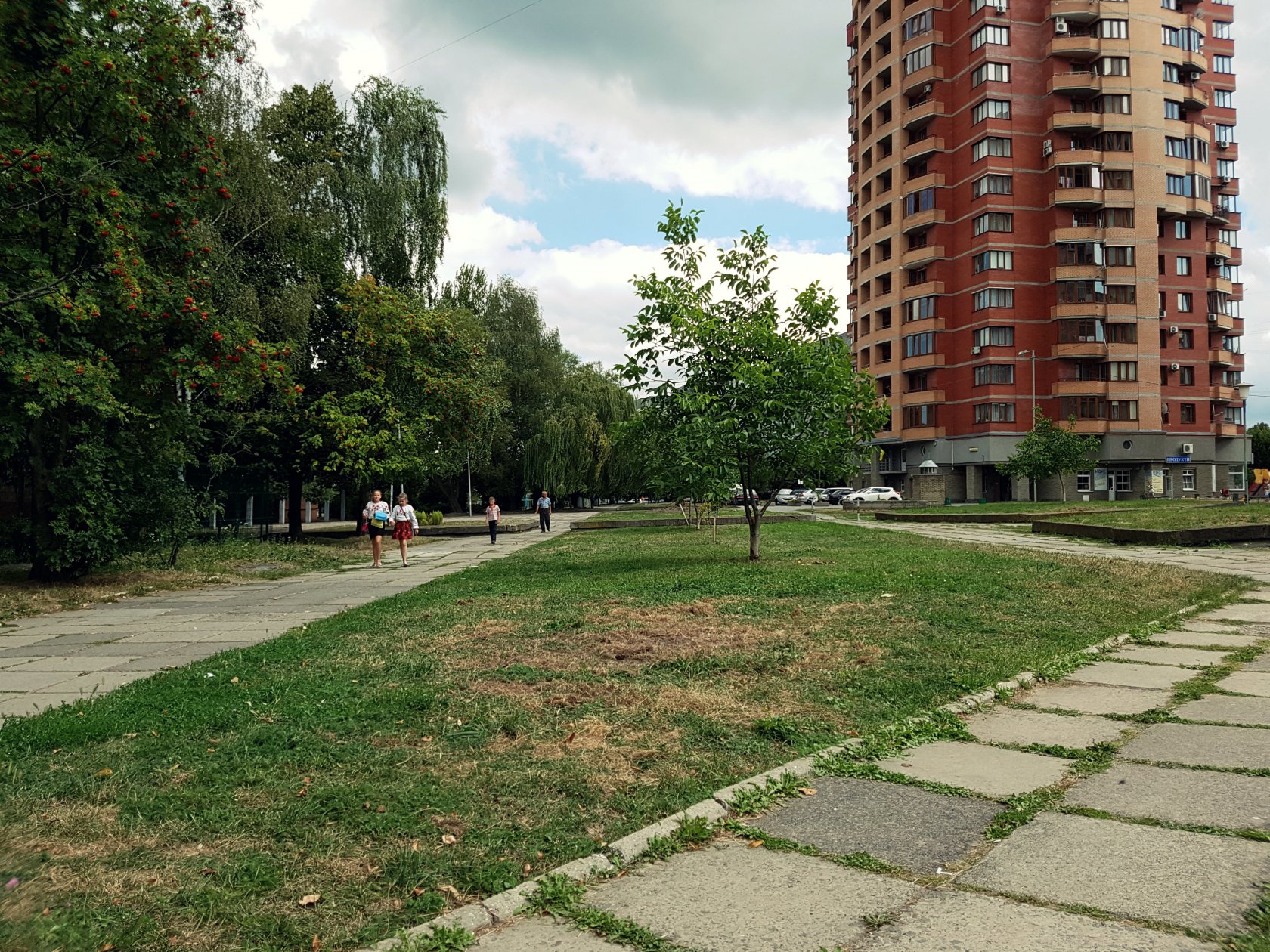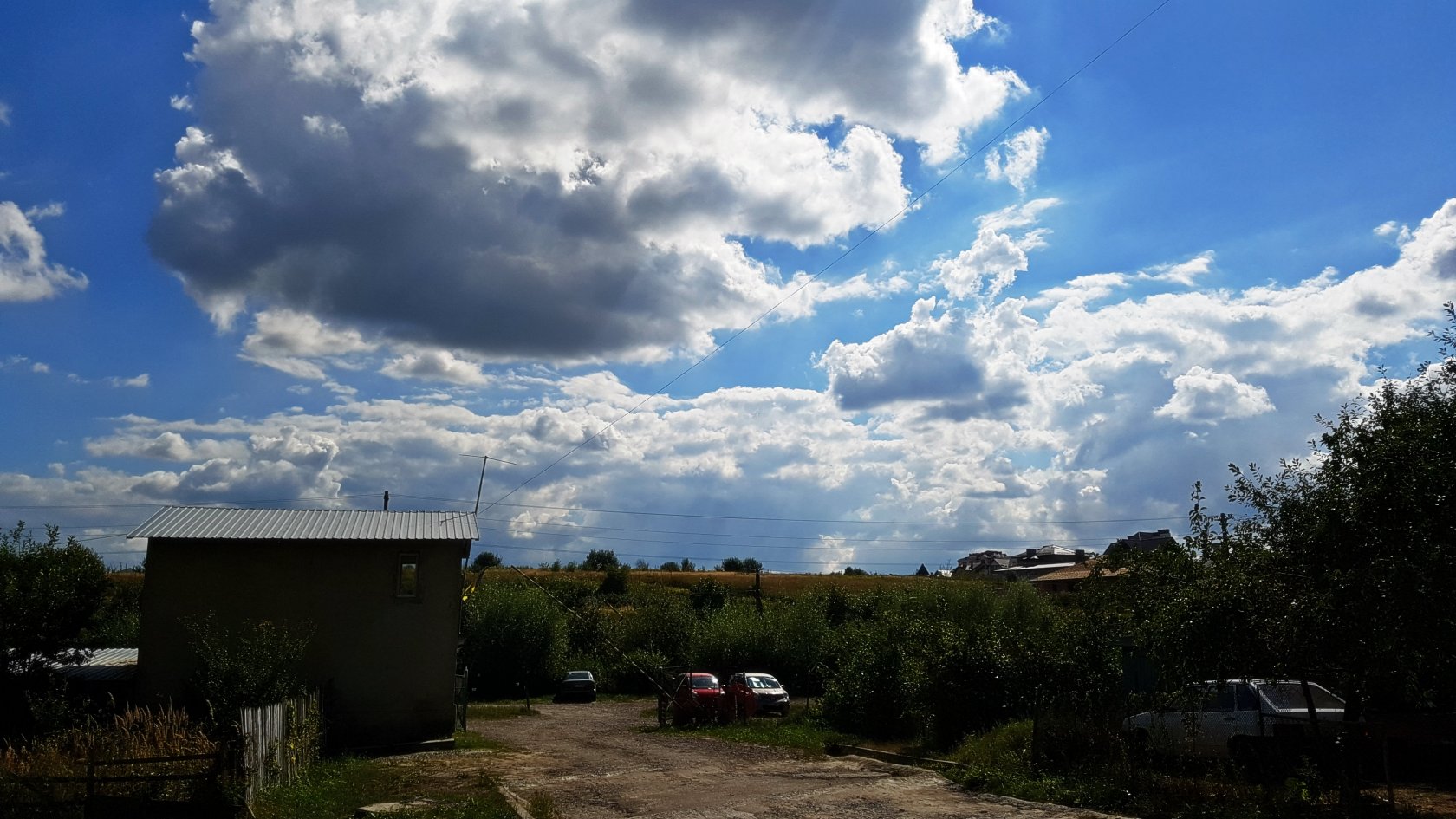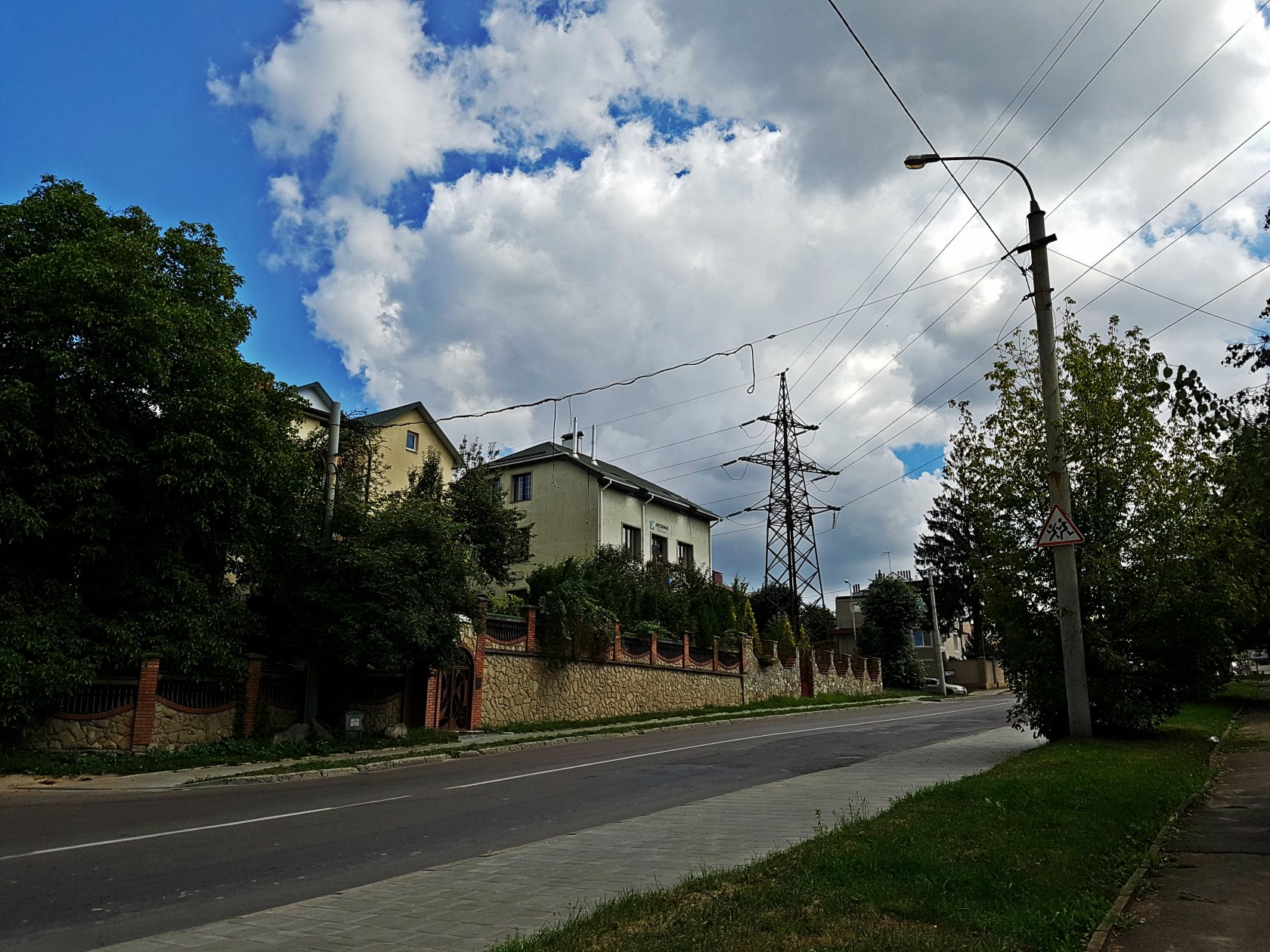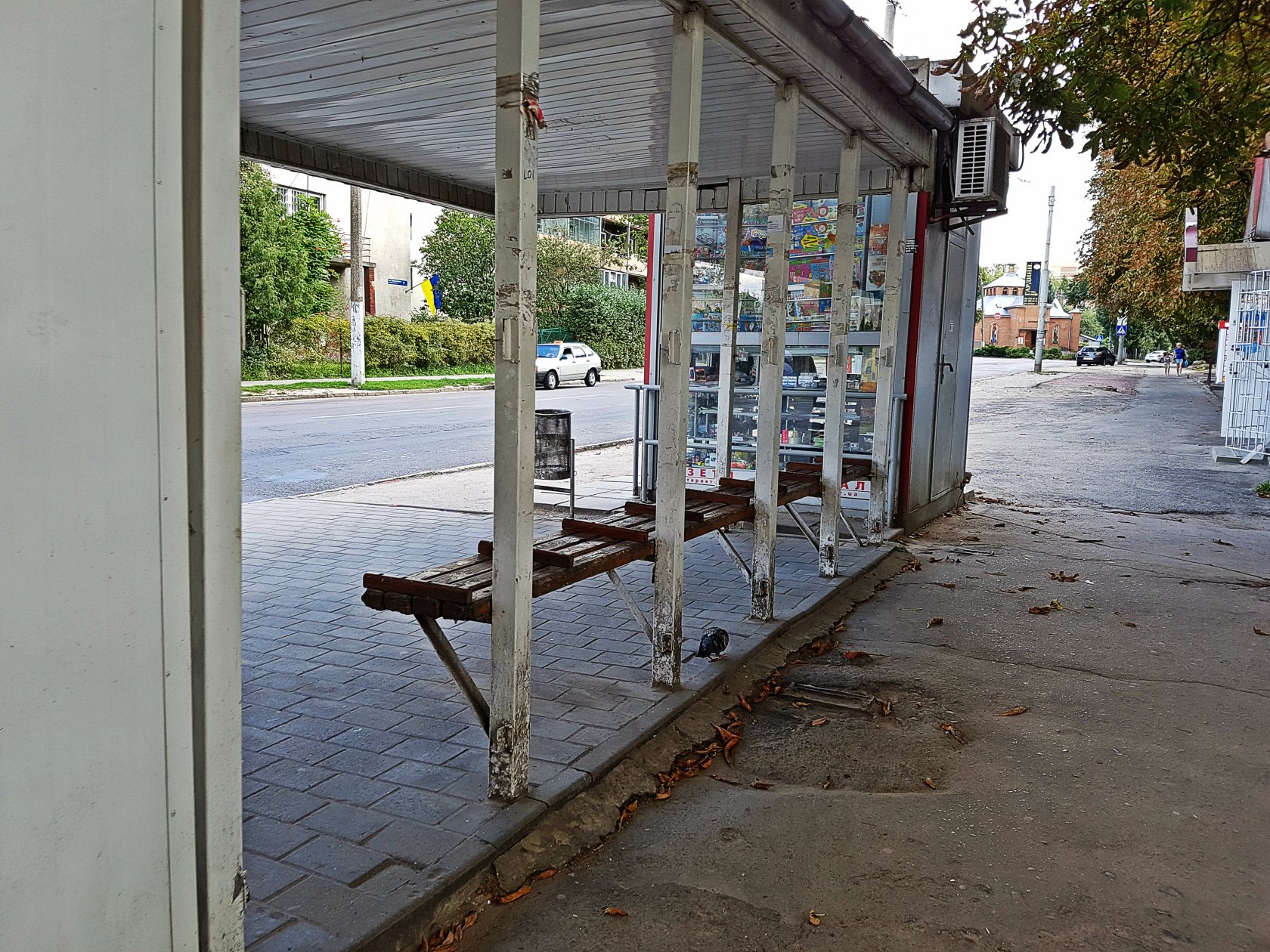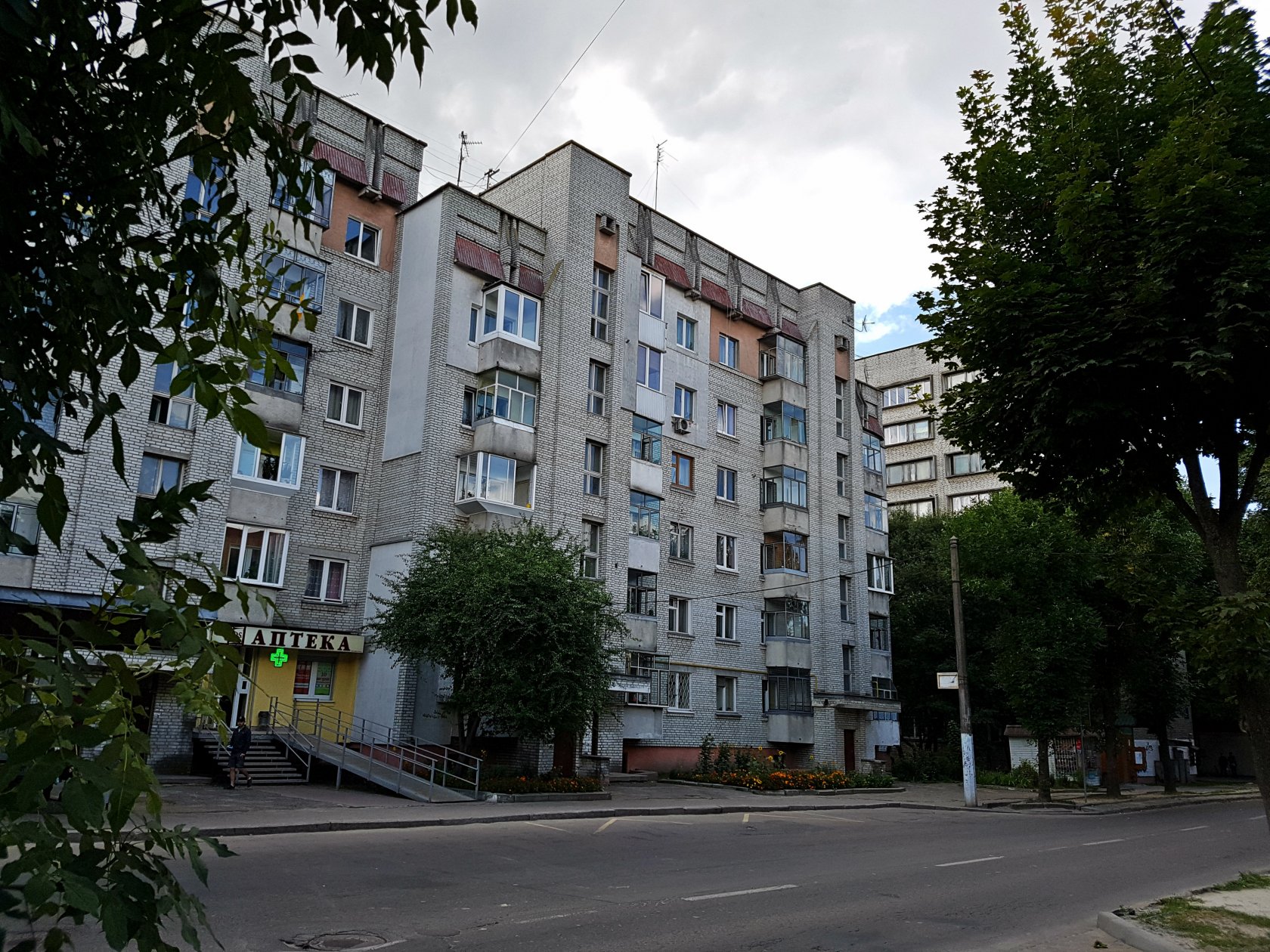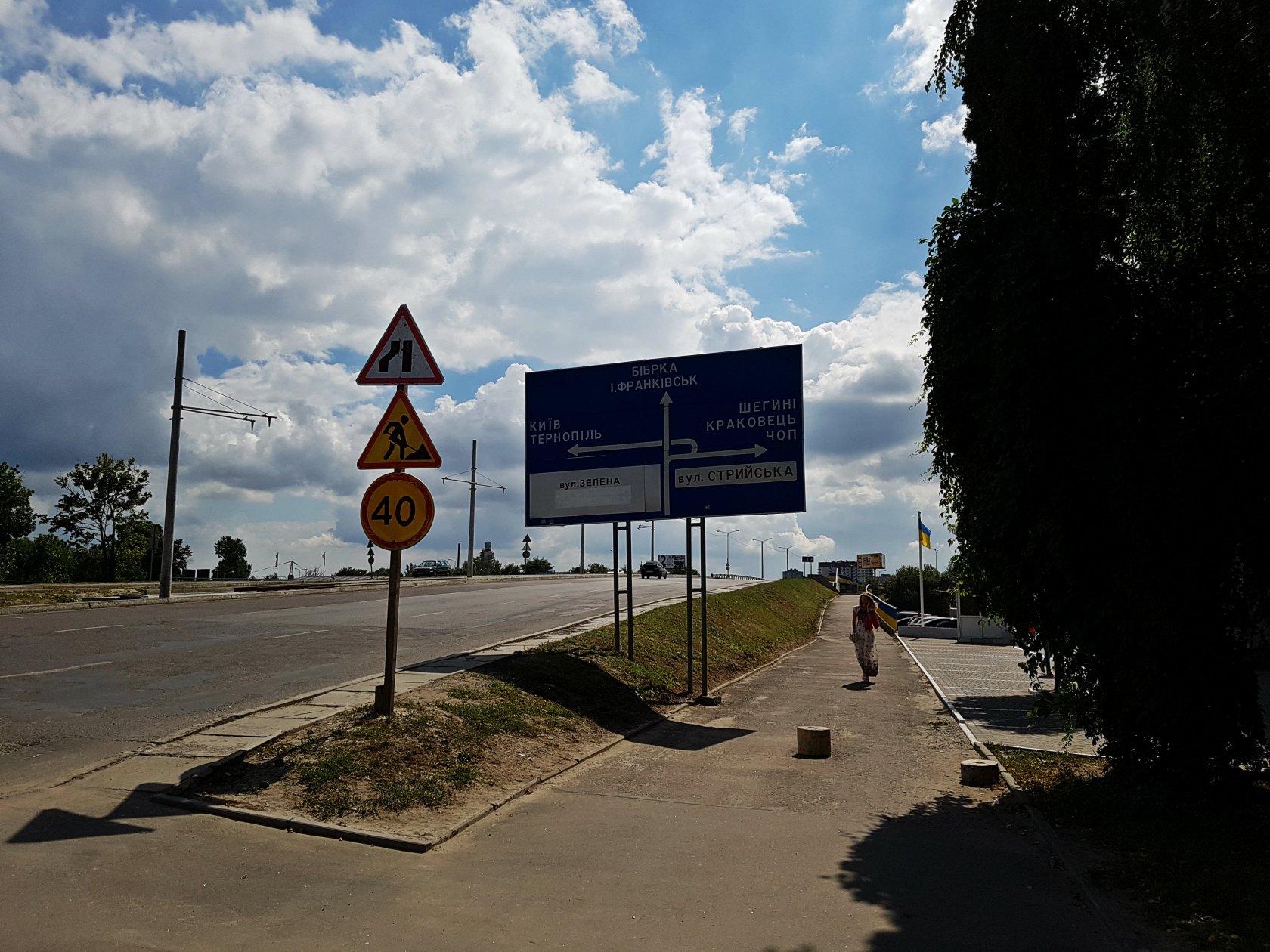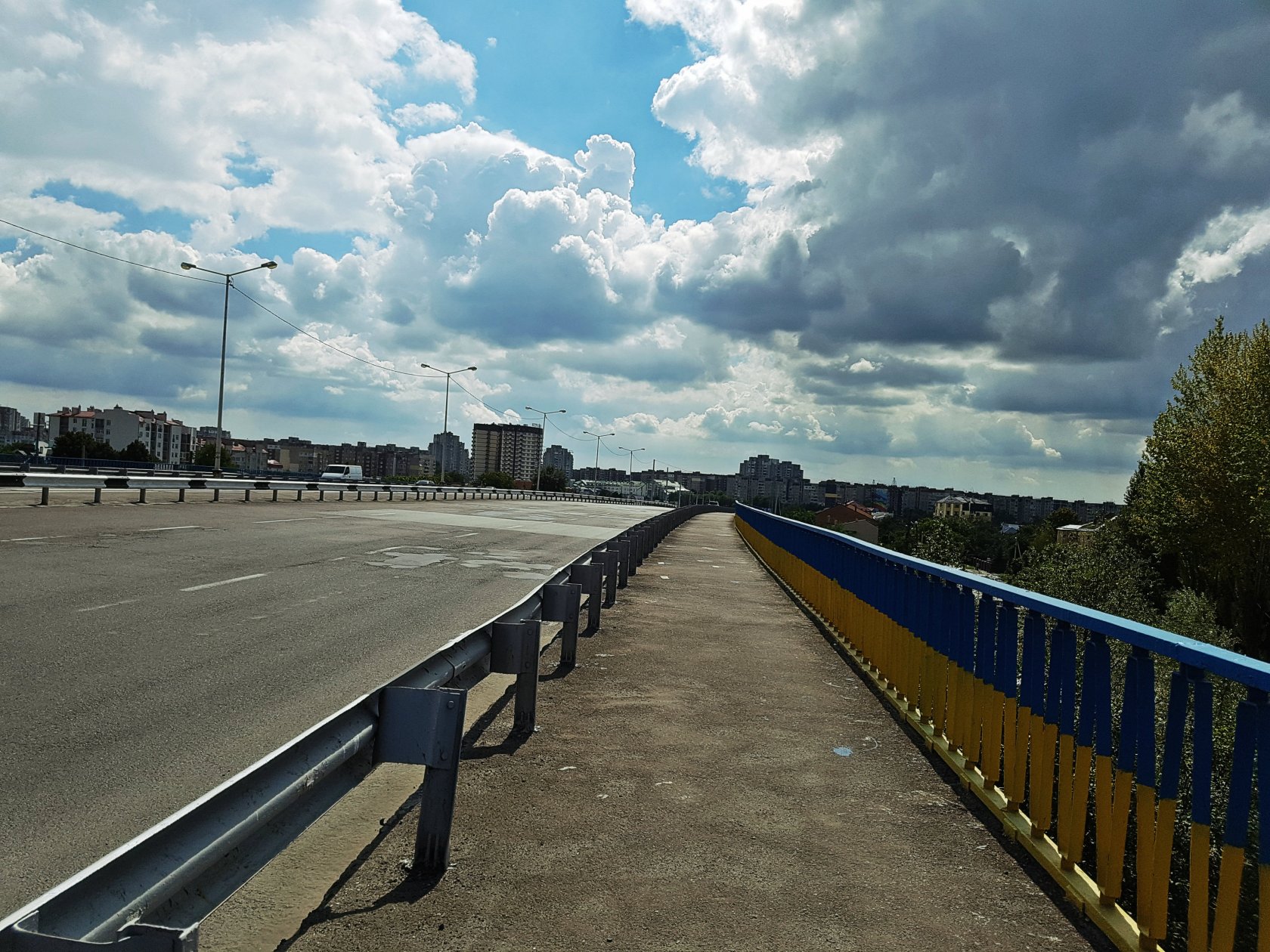ISMJ 2016
BUILDING TRUST:
ONE SMILE AT A TIME
Meet a police force you want to meet
For 25 years the Ukrainian police was known to be easily bribed, to frame people for crimes they did not commit and to frequently beat up and rob drunken people.
For 25 years Ukrainian people avoided calling the police whenever it was possible – out of fear of what would happen once they arrived.
For 25 years the appearance of the Militsiya, as the old police was known, meant that harm was going to be done. Oftentimes people had to pay a lot of money just to make them go away.
For 25 years Ukrainian people avoided calling the police whenever it was possible – out of fear of what would happen once they arrived.
For 25 years the appearance of the Militsiya, as the old police was known, meant that harm was going to be done. Oftentimes people had to pay a lot of money just to make them go away.
REFORM
The New Police
The police force that can be seen on the streets of Ukraine today is a completely different matter.
On the 3rd of July 2015, as part of the post-Euromaidan reforms, a new police force was brought to life. They slowly started to replace the Militsiya all over the country, beginning in Kiev. By the end of 2015 there were 10.000 new patrol officers in Ukraine.
While only 5% of the Ukrainians trusted the Militsiya, the trust towards the new police now is up to 85%. People happily approach the Politsiya officers. They call if they are in trouble or if they want to report a crime. And they come up to the officers on the street – even if it is just for asking directions or to take selfies with them.
But not only the mood of the Ukrainians towards the police has changed fundamentally. The average age and gender diversity of the new police is something entirely new as well. Now most officers are in their mid twenties, and one in four officers are women.
On the 3rd of July 2015, as part of the post-Euromaidan reforms, a new police force was brought to life. They slowly started to replace the Militsiya all over the country, beginning in Kiev. By the end of 2015 there were 10.000 new patrol officers in Ukraine.
While only 5% of the Ukrainians trusted the Militsiya, the trust towards the new police now is up to 85%. People happily approach the Politsiya officers. They call if they are in trouble or if they want to report a crime. And they come up to the officers on the street – even if it is just for asking directions or to take selfies with them.
But not only the mood of the Ukrainians towards the police has changed fundamentally. The average age and gender diversity of the new police is something entirely new as well. Now most officers are in their mid twenties, and one in four officers are women.
Who We Are
We, foreigners from Austria and Denmark, examined the new police force. We were curious how they interact with people, how they feel about the Militsiya and how the general atmosphere towards them is. We joined them on their patrol, accompanied them to lunch and got the hang of what a normal day with them is like. We also investigated how visible they are in the outskirts and how well they communicate with non-Ukrainians.
We, foreigners from Austria and Denmark, examined the new police force. We were curious how they interact with people, how they feel about the Militsiya and how the general atmosphere towards them is. We joined them on their patrol, accompanied them to lunch and got the hang of what a normal day with them is like. We also investigated how visible they are in the outskirts and how well they communicate with non-Ukrainians.

Lviv, Freedom Avenue
One Year Anniversary of the New Police
In Austria you are normally not allowed to touch an officer. In Denmark you typically would not ask police for directions. And certainly you would not take selfies with them in eiher of these countries. But in Lviv this happens every day – and in most cases the officers will take time for such requests. They are friendly. Incredibly friendly.
But is it really a police officer's job to hug people? To shake hands just for the sake of it? To take pictures with bypassers? It definitely is part of the job description of Lviv's Politsiya. "If you approach us friendly, we will happily smile back at you. Not just out of politeness, we are actually instructed to do so in school", says Vasyl, one of the officers that we accompanied on patrol. And even if they are busy, they will keep a friendly face, and mostly do what people ask of them.
Maybe that doesn't necessarily have to be part of a police officer's job. But maybe it is exactly what the people of Ukraine need, to overcome the fear and mistrust towards the police. A fear and mistrust that has been cultivated over 25 years. That has been fueled by crimes committed by the people that were supposed to stop crime. Maybe – in this extraordinary situation – giving directions and taking selfies is the right thing to do. The right thing to do to finally make people feel safe in their own country.
But is it really a police officer's job to hug people? To shake hands just for the sake of it? To take pictures with bypassers? It definitely is part of the job description of Lviv's Politsiya. "If you approach us friendly, we will happily smile back at you. Not just out of politeness, we are actually instructed to do so in school", says Vasyl, one of the officers that we accompanied on patrol. And even if they are busy, they will keep a friendly face, and mostly do what people ask of them.
Maybe that doesn't necessarily have to be part of a police officer's job. But maybe it is exactly what the people of Ukraine need, to overcome the fear and mistrust towards the police. A fear and mistrust that has been cultivated over 25 years. That has been fueled by crimes committed by the people that were supposed to stop crime. Maybe – in this extraordinary situation – giving directions and taking selfies is the right thing to do. The right thing to do to finally make people feel safe in their own country.
Independence Day, Lviv City Center
On Patrol with the New Police
Who are those brave and smart people that choose this job? Who choose to protect the people walking the streets of Ukraine? We spent a whole Independance Day following the New Police around with cameras and tons of questions.
"Do you have any instructions for us?" we asked at the beginning. We expected to hear an answer like "Make as less noise as you can and don't disturb us." But the actual response was "No, just do your job as journalists and we will do ours."
"Do you have any instructions for us?" we asked at the beginning. We expected to hear an answer like "Make as less noise as you can and don't disturb us." But the actual response was "No, just do your job as journalists and we will do ours."
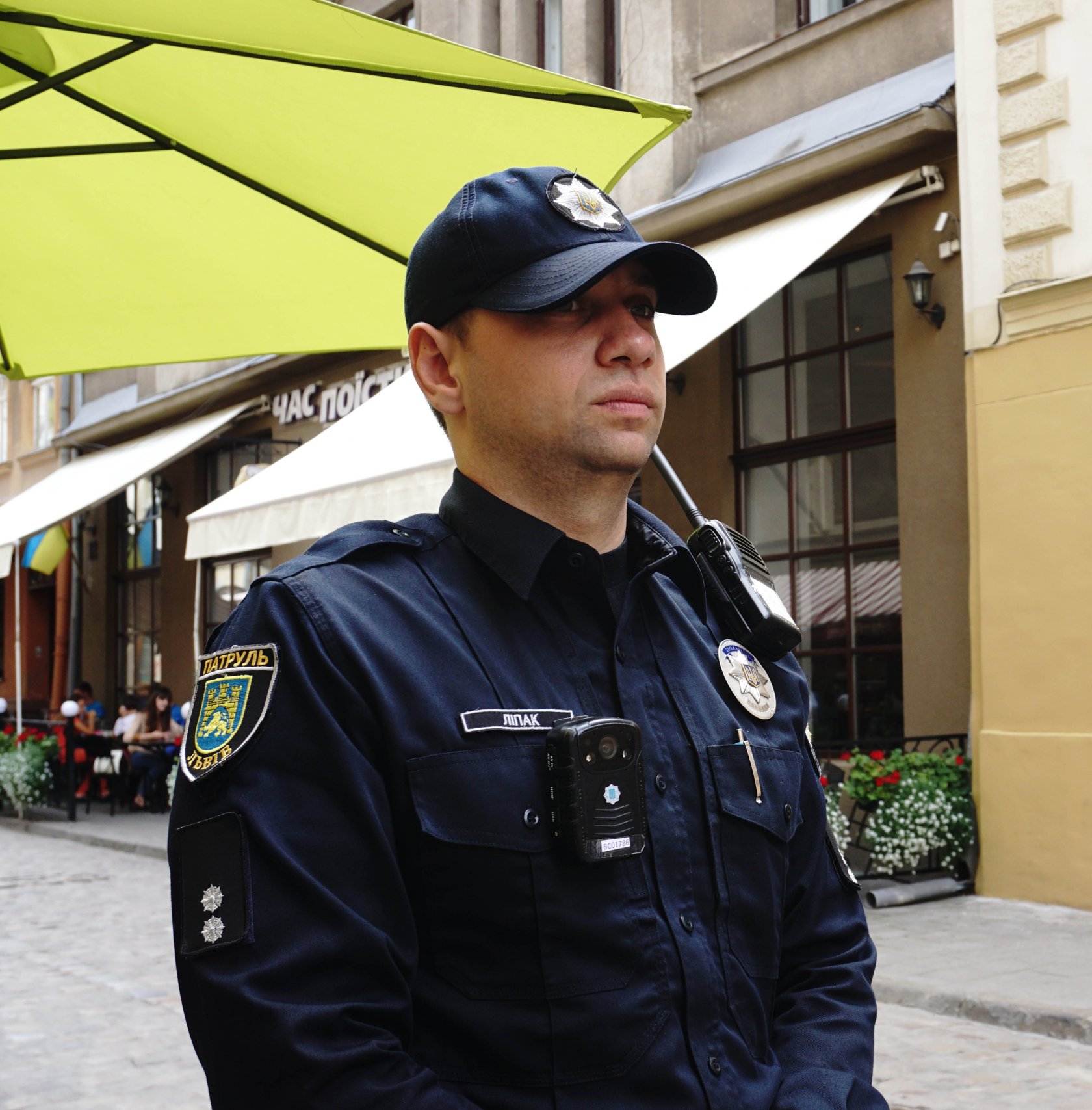
"I used to make twice as much money in my previous job. Money is not the reason why I am police officer. For me it is about the opportunity to make real changes, not to only talk about them."
Nazar Lipak
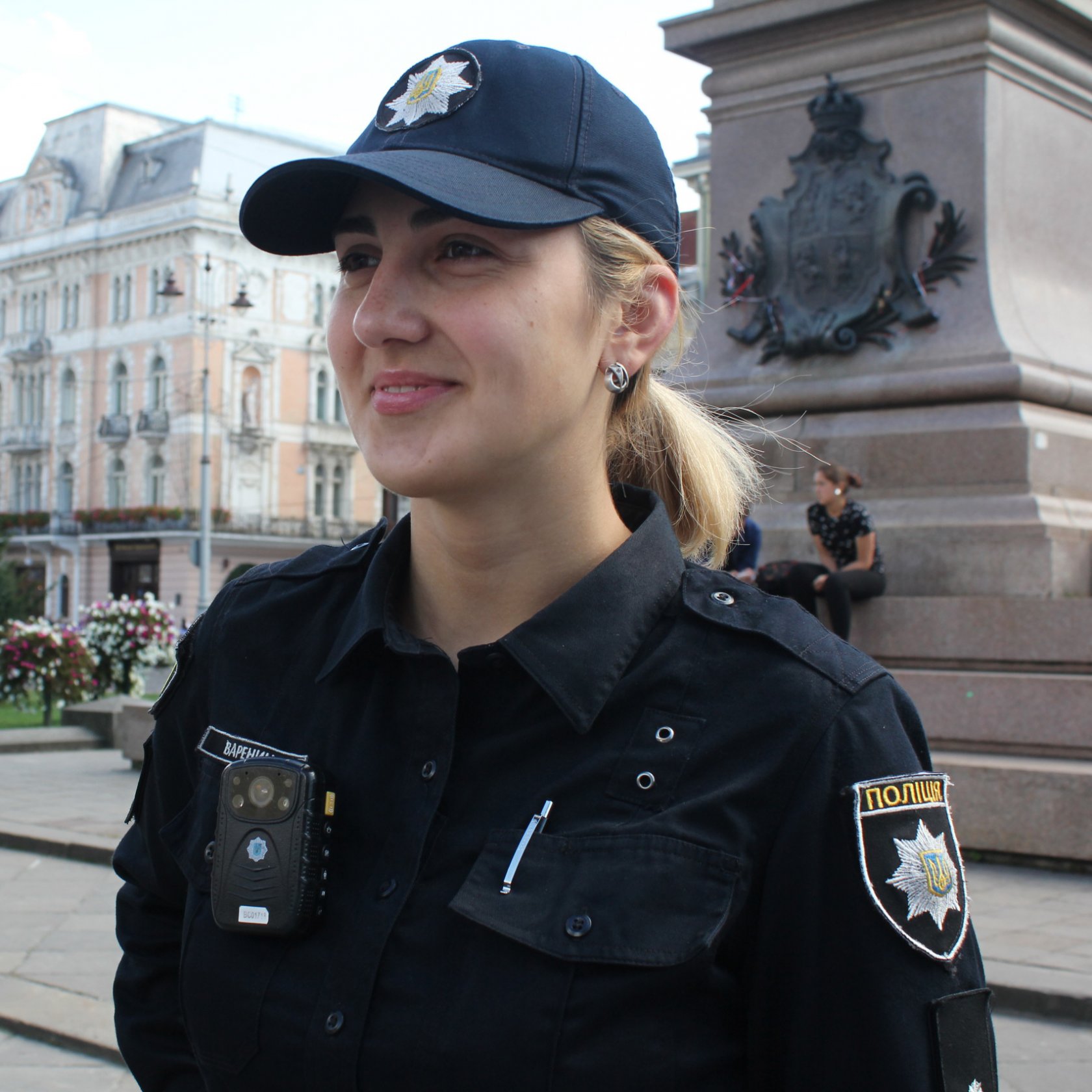
"I don't like it when people ask for directions. I don't know why they think it's my duty. I want to help people but that's not part of my job."
Oksana Varenytsia
While on patrol, the officers received a call from a hotel. A man from Poland had been robbed the night before. They hurried to the hotel, calmed the upset victim down in English, took him to the police station and figured out the best way for him to travel home the same day - even though it was a public holiday. They treated him so well that he decided to write an email to their boss to show his appreciation for the help he got.
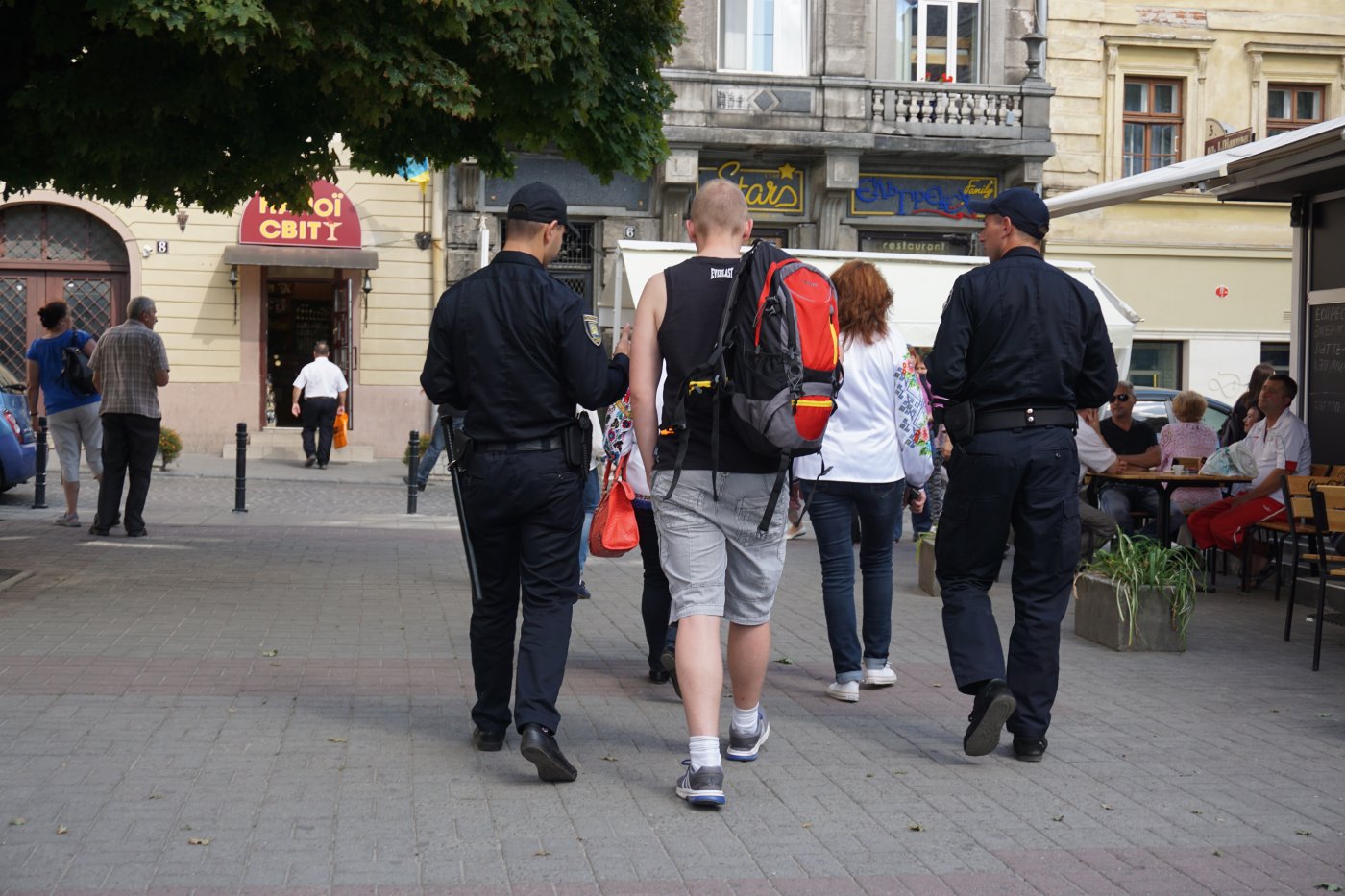
Off the beaten track
Strolling around the Outskirts of Lviv
As visible as the Politsiya is in the bustling city center of Lviv, should a foreigner get lost somewhere in the area outside of the center, he would have to walk for a very long time without seeing a single officer. They most certainly still lack manpower. In fact, currently only 800 new officers are patrolling the city of Lviv which inhabits more than 700.000 people.
There really was no reason to feel insecure, but there also was no police. No patrol on foot. No patrol on bike. No patrol in cars. For almost 3 hours there was no police or police station to be found.
If you are a foreigner who can't call them, you might have to make due without them.
There really was no reason to feel insecure, but there also was no police. No patrol on foot. No patrol on bike. No patrol in cars. For almost 3 hours there was no police or police station to be found.
If you are a foreigner who can't call them, you might have to make due without them.
If you find them though you can ask them anything, and they will help. Officers of the new police spend an intense three months at the police academy before becoming officers. Here they study law, are taught how to use their gun, and learn what to do in the different situations they will encounter as officers. Most importantly an emphasis is placed on being helpful and peaceful, and capable of dealing with tourists. The training seems to be successful.
This is despite the fact that to a foreign observer a three month education does not seem like enough training. In Austria it is 24 months. In Denmark it is two or three years depending on the career track you choose. In Germany they train for at least 130 weeks. Even in the USA they train for 19 weeks. That's five weeks more than in Ukraine.
Still, it seems to be working. The fact that their relationship with the community is positive is obvious to any observer. Even Ukrainians that are indifferent about the police reform, or those sceptical that the friendliness will last long in a system plagued by corruption, admit that for now things are good.
This is despite the fact that to a foreign observer a three month education does not seem like enough training. In Austria it is 24 months. In Denmark it is two or three years depending on the career track you choose. In Germany they train for at least 130 weeks. Even in the USA they train for 19 weeks. That's five weeks more than in Ukraine.
Still, it seems to be working. The fact that their relationship with the community is positive is obvious to any observer. Even Ukrainians that are indifferent about the police reform, or those sceptical that the friendliness will last long in a system plagued by corruption, admit that for now things are good.
What Nazar and Vasil, officers in the new police force, have to say
What do people think about the new police?
People believe in the new police. The number of calls to the police is now 5-6 times higher than before, not because there are more crimes, but because people did not believe that the old police would help them. Therefore they would only call in really serious situations. Now people call even for small things. But there always will be people that don't like the police, even if they do everything right. And the untrust towards the new police was built over 30 years; that cannot be changed in one year.
Do you feel that people take you seriously when you approach them?
Some do, some don't. It's also foreign citizens that don't take us seriously. For example one night a Danish tourist was screaming in the street, and when I told him not to, he just joked around with me. But when I told him that he had to either show me his ID or come to the police station with us, he got quiet and everything ended up being alright.
Did people try to bribe you?
Yes they do, especially drivers. It happens 2-3 times a day. But we just explain to them that it is now is a crime to bribe officers, and normally they understand. Honesty was one of our conditions. If you're not honest, you cannot be a police officer.
What do you think about the people that want to take pictures with you?
In the first weeks I was flattered. But now it can be a problem if I am busy. I also don't know where these photos will show up. And we don't have any official rules on how to deal with this.
How is the relationship with the old police?
We are not really friends. Their attitude towards us is not good, because we have a better salary, but they have a lot more work. But I am proud that some members of the old police are now working with us.
Have you had any personal experiences with the old police?
There was one time where my friend was drunk and the police showed up. They took me and my friend to the police station, even though I was not drunk. And we had to give them money so they would let us go. That was a common thing with the old police. I didn't trust them. Not all members of the old police were bad, some were good people. But most were not.
What do you think about the Ukrainian law?
According to the law, there is not a lot of stuff that policemen can do. If a drunk man commits a crime, he will spend two days filling out paperwork and then pay a fine of 50 Ukrainian hryvnia, which is not a lot. So it is essential to change the existing laws. But that is going to happen in October; we are looking forward to that.
People believe in the new police. The number of calls to the police is now 5-6 times higher than before, not because there are more crimes, but because people did not believe that the old police would help them. Therefore they would only call in really serious situations. Now people call even for small things. But there always will be people that don't like the police, even if they do everything right. And the untrust towards the new police was built over 30 years; that cannot be changed in one year.
Do you feel that people take you seriously when you approach them?
Some do, some don't. It's also foreign citizens that don't take us seriously. For example one night a Danish tourist was screaming in the street, and when I told him not to, he just joked around with me. But when I told him that he had to either show me his ID or come to the police station with us, he got quiet and everything ended up being alright.
Did people try to bribe you?
Yes they do, especially drivers. It happens 2-3 times a day. But we just explain to them that it is now is a crime to bribe officers, and normally they understand. Honesty was one of our conditions. If you're not honest, you cannot be a police officer.
What do you think about the people that want to take pictures with you?
In the first weeks I was flattered. But now it can be a problem if I am busy. I also don't know where these photos will show up. And we don't have any official rules on how to deal with this.
How is the relationship with the old police?
We are not really friends. Their attitude towards us is not good, because we have a better salary, but they have a lot more work. But I am proud that some members of the old police are now working with us.
Have you had any personal experiences with the old police?
There was one time where my friend was drunk and the police showed up. They took me and my friend to the police station, even though I was not drunk. And we had to give them money so they would let us go. That was a common thing with the old police. I didn't trust them. Not all members of the old police were bad, some were good people. But most were not.
What do you think about the Ukrainian law?
According to the law, there is not a lot of stuff that policemen can do. If a drunk man commits a crime, he will spend two days filling out paperwork and then pay a fine of 50 Ukrainian hryvnia, which is not a lot. So it is essential to change the existing laws. But that is going to happen in October; we are looking forward to that.
Conclusion
How We Felt
So: You can ask, and they will help. But first you have to find them. If you do, the experience is positive.
After spending a day on patrol with the officers of the new police we are left with an overall positive impression. They are friendly and open, and the people they interacted with seem to walk away with a positive impression of these new officers. Especially Ukrainians show appreciation.
And it is the way they interact with Ukrainians that surprises a foreign visitor most. In Austria you are not supposed to touch an officer and might regret it. In Denmark you typically would not ask police officers for directions. And certainly you would not take selfies with them in either country on a regular day. But in Lviv this happens every day – and in most cases the officers will take time for the requests and build trust in the process. Trust that leads to Hope.
Hope is needed these days in Ukraine. In many ways the country faces a grim situation. A shrinking economy, a large shadow economy and government debt to GDP of 71.21% in 2014 give good reason to worry. The social indicators aren't bright either. Life expectancy, for example, is only at around 71 years. For many though the biggest problem is a culture of corruption that has infested the state. In fact, for some observers, the word corruption is inadequate to describe the situation in Ukraine. That requires a lot of effort and reforms.
A police force that stands proud and shows the people of Ukraine that not all officials are corrupt seems like a good place to start.
After spending a day on patrol with the officers of the new police we are left with an overall positive impression. They are friendly and open, and the people they interacted with seem to walk away with a positive impression of these new officers. Especially Ukrainians show appreciation.
And it is the way they interact with Ukrainians that surprises a foreign visitor most. In Austria you are not supposed to touch an officer and might regret it. In Denmark you typically would not ask police officers for directions. And certainly you would not take selfies with them in either country on a regular day. But in Lviv this happens every day – and in most cases the officers will take time for the requests and build trust in the process. Trust that leads to Hope.
Hope is needed these days in Ukraine. In many ways the country faces a grim situation. A shrinking economy, a large shadow economy and government debt to GDP of 71.21% in 2014 give good reason to worry. The social indicators aren't bright either. Life expectancy, for example, is only at around 71 years. For many though the biggest problem is a culture of corruption that has infested the state. In fact, for some observers, the word corruption is inadequate to describe the situation in Ukraine. That requires a lot of effort and reforms.
A police force that stands proud and shows the people of Ukraine that not all officials are corrupt seems like a good place to start.

This project was made during the second International School of Multimedia Journalism, a cooperation between UCU School of Journalism and Media Communication, Georgian Institute of Public Affairs, Danish School of Media- and Journalism and FH Wien University of Applied Sciences Vienna.
Credits: Valentina Semenikhina, Rafaela Khodai, Naja Schyberg Petersen, Leo Lettmayr.
Mentored by Andriy Pryymachenko.
It was produced in Lviv, Ukraine in August 2016
Credits: Valentina Semenikhina, Rafaela Khodai, Naja Schyberg Petersen, Leo Lettmayr.
Mentored by Andriy Pryymachenko.
It was produced in Lviv, Ukraine in August 2016
